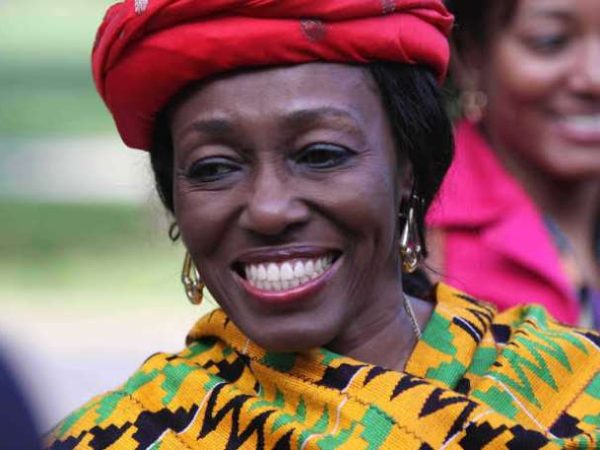Of Presidential Libraries: A Case for a State-Sponsored Library for Dr. Kwame Nkrumah
In every nation that values its history, honours its heroes, and seeks wisdom for the future, memory is sacred. Memory is more than nostalgia, it is the compass of nations, the inheritance of generations. And for Ghana, no memory looms larger, more defining, and more enduring than that of Dr. Kwame Nkrumah, the founding father, visionary, and uncompromising champion of African freedom and dignity.a
Yet today, as nations around the world build enduring monuments to their transformational leaders—through presidential libraries that archive not just the past, but inspire the future—Ghana stands without a comprehensive, state-sponsored presidential library for the man who dared to dream, and achieved, Ghana’s independence.
This omission is more than a missed opportunity; it is a national oversight that must be urgently corrected.
Why Presidential Libraries Matter
Presidential libraries are not mere buildings filled with dusty documents and faded photographs. They are living institutions, curated spaces that bring the past into dialogue with the present. They preserve, interpret, and present the personal papers, speeches, decisions, struggles, and legacies of those who shaped the nation’s course.
In the United States, every president since Franklin D. Roosevelt has had a presidential library—each serving as a national archive, museum, research centre, and civic space. These libraries are educational tools, used by students, scholars, policymakers, and citizens to better understand the choices that shaped a nation. They are places of reflection, inspiration, and learning.
For Ghana, and indeed for Africa, there is no figure more deserving of such an institution than Dr. Kwame Nkrumah.
Nkrumah’s Legacy: Too Monumental to Forget
Kwame Nkrumah was not merely Ghana’s first President—he was the ideological architect of Pan-Africanism, the voice that challenged colonialism, and the dreamer who insisted that Black people across the world were destined for dignity, equality, and self-determination.

He led Ghana into independence in 1957—not simply as a political act, but as a symbol of African possibility. His speeches echoed across the globe, galvanizing liberation movements and shaping post-colonial discourse. His writings—Consciencism, Africa Must Unite, and others—are still studied around the world. His role in establishing institutions such as the OAU (now the African Union), his policy innovations, and his bold vision for industrialisation are all cornerstones of modern African identity.
And yet—where can one go to explore the full breadth of Nkrumah’s mind, his papers, his speeches, his policies, and the private reflections behind his public courage?
Where is the nationally curated space where young Ghanaians can walk in, sit down, and discover the soul of the man whose name they chant on Independence Day?
There is none. And that is a silence too deafening to ignore.
A State Responsibility, Not a Private Hobby
A state-sponsored presidential library for Nkrumah should not be left to private donors, scattered foundations, or piecemeal initiatives. It is the duty of the Republic of Ghana to honour its own history, with the dignity and institutional commitment that such a legacy demands.
This library should be fully state-funded, built to international standards, and serve multiple functions:
- A research centre for Pan-African and decolonial studies.
- A museum preserving documents, artefacts, photographs, and recordings of Nkrumah’s life and times.
- An educational space for schools and universities.
- A public venue for conferences, civic education, and youth engagement.
It would also serve as a national pilgrimage site—where citizens and visitors can connect with the vision, values, and sacrifice that founded modern Ghana.
A Legacy to Inspire Future Generations
This is not just about honouring the past. It is about arming the future with memory. In an era where young Africans seek identity, purpose, and leadership examples, the story of Nkrumah is not just relevant—it is urgent.
The world is once again debating questions of inequality, self-determination, and sovereignty. Climate change, neo-colonial economics, and digital empires are reshaping global dynamics. Nkrumah’s insistence on African agency, unity, and innovation has never been more timely.
Imagine a generation of young Africans walking into the Nkrumah Presidential Library, not to admire relics, but to absorb ideas. Not to mourn what was lost, but to inherit what remains possible.
A Nation that Remembers is a Nation that Rises,
In the end, the question is simple: If Ghana will not honour Kwame Nkrumah with a presidential library, who will?
A nation that forgets its founding dreamer is in danger of forgetting its dream. But a nation that institutionalises its memory is one that walks boldly into the future, guided by the wisdom of its past.
Let us, then, rise to this responsibility. Let us call, clearly and loudly, for the state-sponsored Kwame Nkrumah Presidential Library.
Not tomorrow. Now.
Respectfully yours,
Kasise Ricky Peprah
PS
Poetic Justice Maybe…
Maybe we can convert the abortive National Cathedral space into this worthy cause, that way we can forget the “bad joke” that continues to haunt millions of well-meaning Ghanaians.








